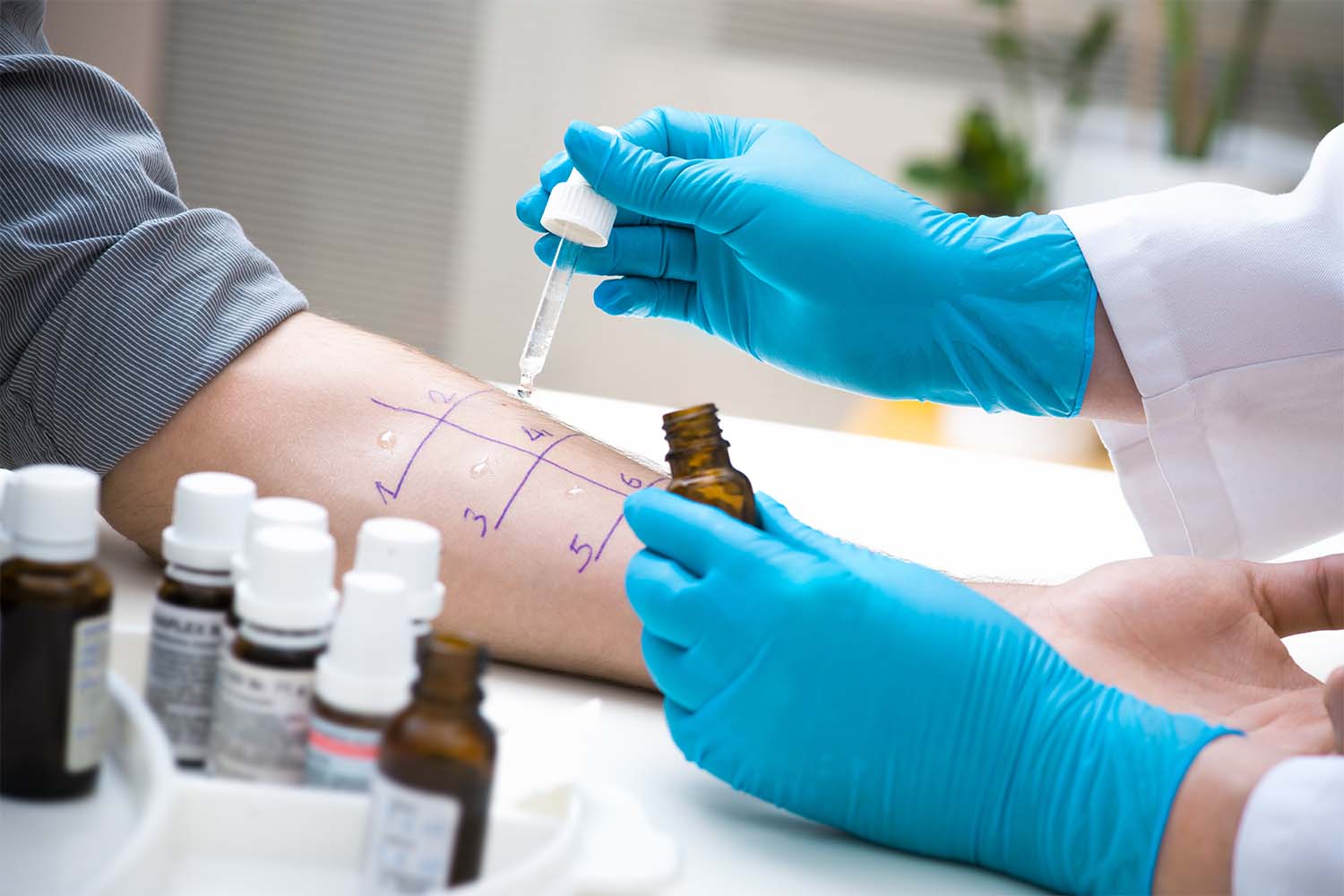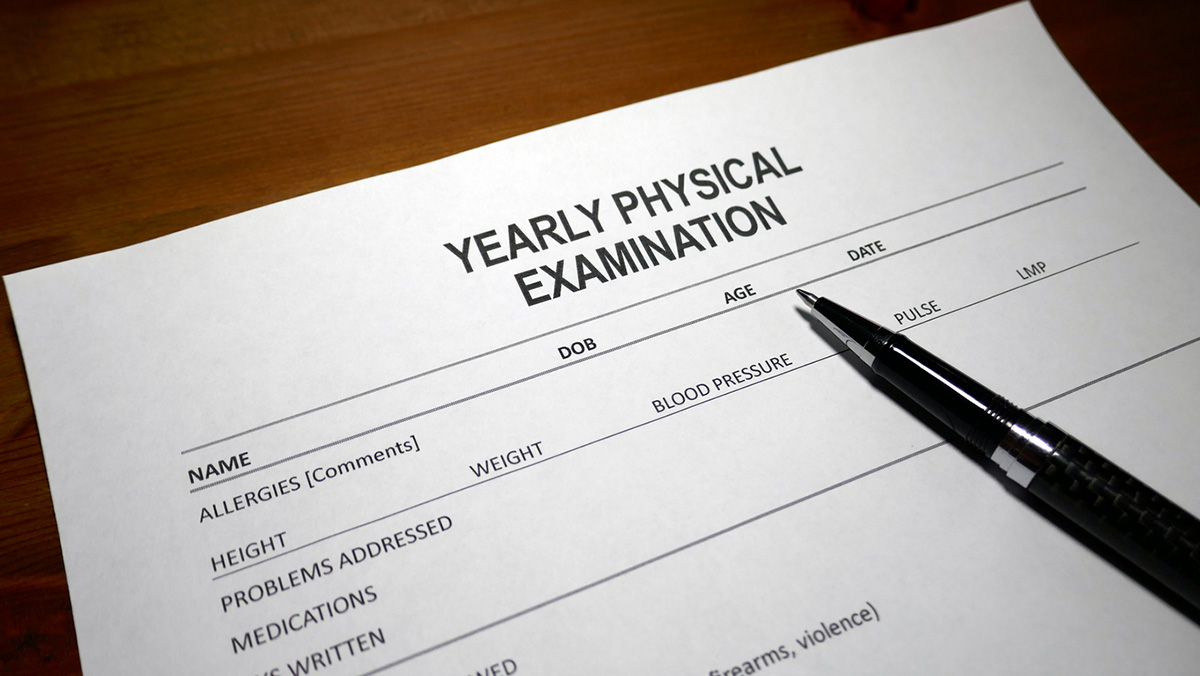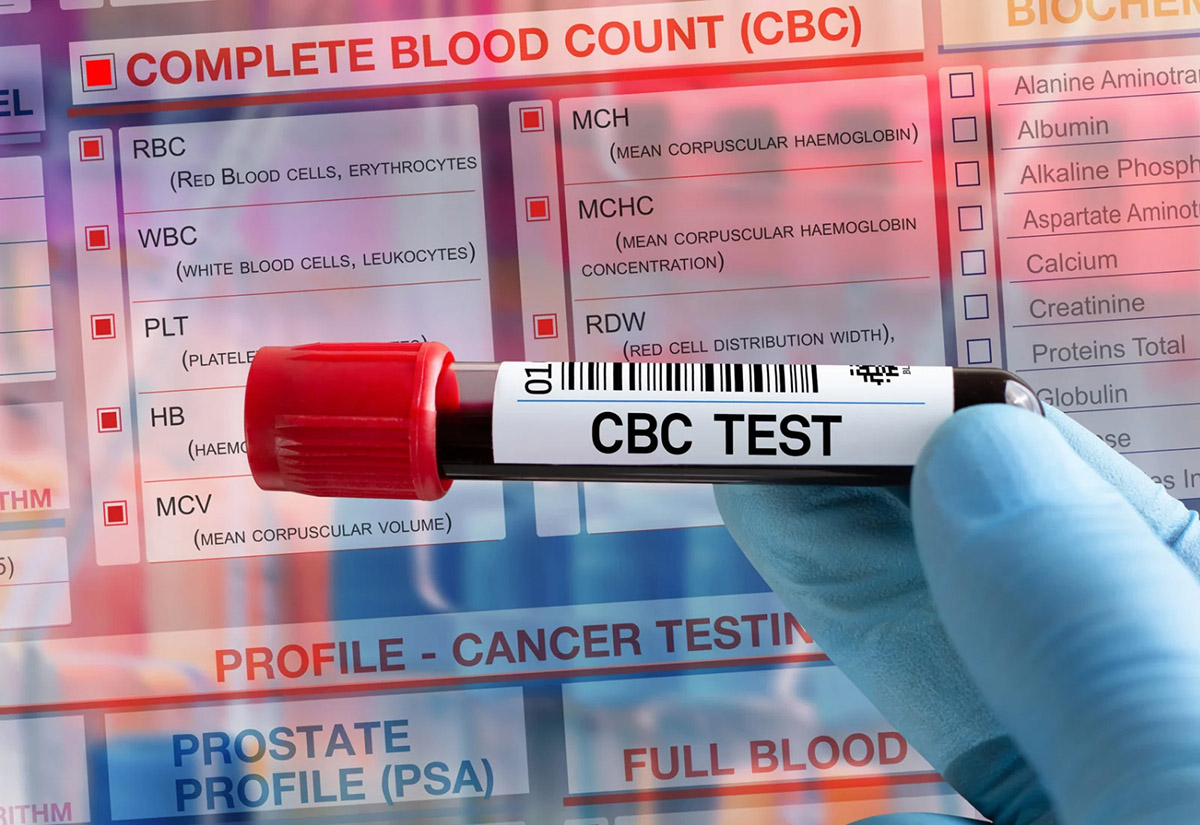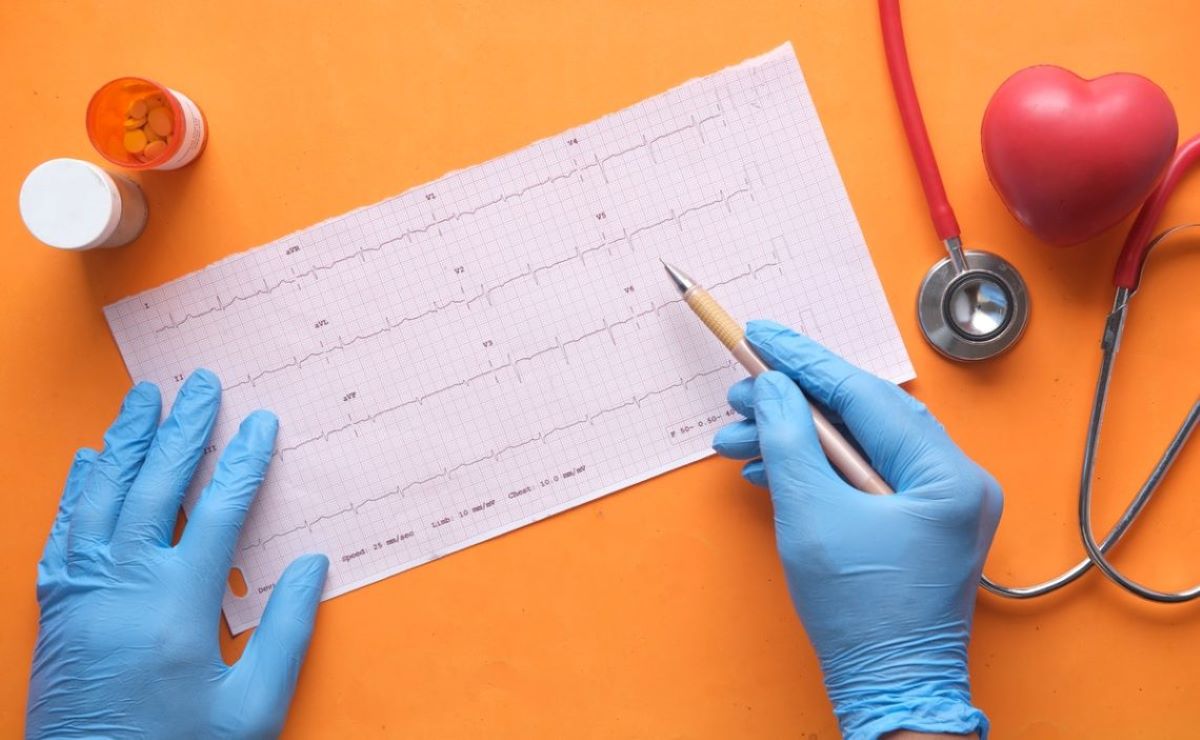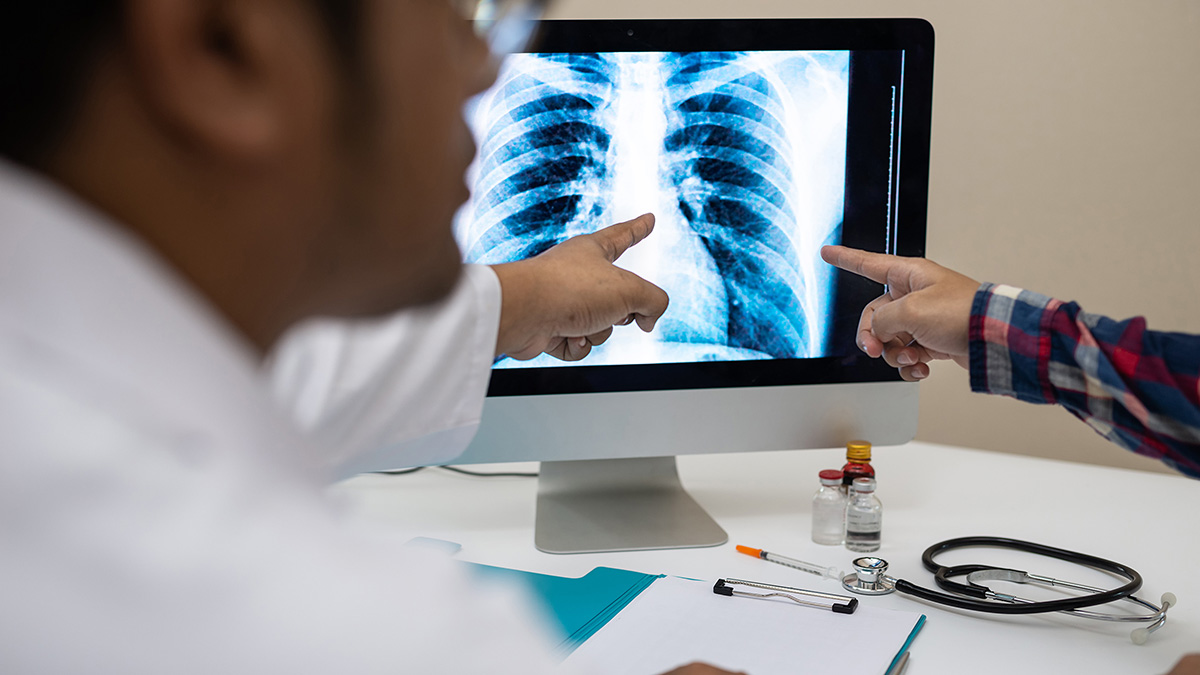

Finance
How Much Is A TB Test Without Insurance?
Published: November 18, 2023
Discover the cost of a TB test without insurance and explore the available financing options. Take control of your health and finances today.
(Many of the links in this article redirect to a specific reviewed product. Your purchase of these products through affiliate links helps to generate commission for LiveWell, at no extra cost. Learn more)
Table of Contents
Introduction
Tuberculosis, commonly known as TB, is a contagious bacterial infection that primarily affects the lungs. It is caused by Mycobacterium tuberculosis and can spread through the air when an infected person coughs or sneezes. TB is a serious global health issue, with millions of new cases reported each year.
Proper and timely testing for TB is crucial for diagnosis and early treatment to prevent the spread of the disease. However, for individuals without health insurance, the cost of TB testing can be a barrier to receiving necessary medical care.
Understanding the importance of TB testing and exploring low-cost or free testing options is vital for individuals facing financial constraints. In this article, we will delve into the cost factors associated with TB testing without insurance and explore alternative options available for affordable or free testing.
By shedding light on the financial implications of TB testing and the resources available, we aim to empower individuals to make informed decisions about their healthcare and ensure that no one is left behind in accessing essential medical services.
Understanding TB
Tuberculosis, commonly known as TB, is an infectious disease caused by the bacterium Mycobacterium tuberculosis. It primarily affects the lungs but can also target other parts of the body, such as the kidneys, spine, and brain. TB is spread through the air when an infected person coughs, sneezes, or even talks.
Once inhaled, the bacteria settle in the lungs and can multiply, leading to an active TB infection. However, it’s important to note that not everyone who inhales the bacteria develops active TB. In many cases, the immune system is able to keep the bacteria dormant, resulting in a condition known as latent TB infection. This means that the person is infected with TB but does not have any symptoms and cannot transmit the disease to others.
On the other hand, individuals with active TB experience symptoms such as persistent coughing (often accompanied by phlegm or blood), chest pain, fatigue, weight loss, fever, and night sweats. If left untreated, TB can be life-threatening.
It is worth mentioning that TB is more prevalent in developing countries, but it is still a concern in developed countries as well. Factors such as overcrowding, poor healthcare infrastructure, and inadequate access to treatment contribute to the higher incidence of TB in certain regions.
Fortunately, TB is treatable with a combination of antibiotics over an extended period. However, prompt diagnosis is crucial for successful treatment and to prevent the spread of the disease to others.
That’s why TB testing plays a vital role in identifying and treating TB infections. Getting tested for TB is the first step towards early detection, providing healthcare professionals with the information needed to prescribe the appropriate treatment regimen.
In the next section, we will discuss the importance of TB testing and why it is essential, particularly for individuals at risk or those exhibiting symptoms.
The Importance of TB Testing
TB testing is crucial for several reasons, both at an individual level and from a public health perspective. Let’s explore the importance of TB testing in more detail:
Early Diagnosis: TB is often asymptomatic in its early stages. Without testing, individuals may be unaware that they are infected, allowing the bacteria to spread to others unknowingly. TB testing allows for early detection, enabling prompt treatment initiation and reducing the risk of complications.
Preventing Transmission: Testing helps identify individuals with active TB who are at risk of transmitting the infection to others. Early diagnosis and appropriate treatment can significantly reduce the transmission rates and ultimately halt the spread of the disease within communities.
Contact Tracing: TB testing is essential for contact tracing, a process used to identify and test individuals who have been in close contact with an individual diagnosed with TB. By identifying and testing these contacts, healthcare providers can prevent further transmission and provide timely treatment if necessary.
Effective Treatment: Prompt TB testing ensures that individuals receive the correct diagnosis, leading to the appropriate treatment regimen. TB treatment typically involves a combination of antibiotics taken over several months. Starting treatment early can increase the chances of successful recovery and minimize the risk of drug resistance.
Monitoring Treatment Progress: TB testing is also used to monitor the effectiveness of treatment. Regular follow-up tests can help healthcare providers determine if the treatment is working effectively and make adjustments if needed.
Public Health Efforts: TB testing is not only important for individuals but also for public health efforts to control and eliminate the disease. By identifying and treating TB cases, public health departments can work towards reducing the overall burden of TB in communities and preventing outbreaks.
Overall, TB testing is a critical component of TB control strategies. It allows for early detection, appropriate treatment, and preventive measures to reduce the spread of the disease. In the next section, we will discuss the costs associated with TB testing for individuals without health insurance.
Cost of TB Testing without Insurance
For individuals without health insurance, the cost of TB testing can be a significant concern. Without coverage, the expenses associated with testing can create a financial barrier to accessing necessary healthcare services. The cost of TB testing can vary depending on various factors, including the type of test performed and the healthcare provider.
One of the common methods used for TB testing is the tuberculin skin test (TST), also known as the Mantoux test. This test involves injecting a small amount of purified protein derivative (PPD) into the skin and examining the reaction after 48 to 72 hours. The cost of a TST can range from $10 to $50, depending on the location and the healthcare provider.
Another commonly used TB test is the interferon-gamma release assay (IGRA), such as the QuantiFERON-TB Gold test. This blood test detects the release of specific proteins in response to the TB bacteria. The cost of an IGRA can range from $100 to $300. Compared to the TST, this test is more expensive but offers the advantage of requiring only one visit to a healthcare provider.
It’s important to note that these costs are approximate and can vary significantly depending on the location, healthcare provider, and any additional fees associated with the visit. It’s advisable to contact healthcare providers or clinics directly to inquire about specific pricing before undergoing TB testing.
While the cost of TB testing can be a burden for individuals without insurance, there are options available to help mitigate these expenses. In the next section, we will discuss low-cost or free TB testing options that individuals can explore to access the necessary testing without incurring high costs.
Factors that Affect the Cost
Several factors can influence the cost of TB testing without insurance. Understanding these factors can help individuals anticipate and navigate the expenses associated with TB testing. Here are some key factors that can affect the cost:
Healthcare Provider: The cost of TB testing can vary depending on the healthcare provider. Different providers may have different pricing structures and fees for their services. It is recommended to inquire about pricing beforehand and compare the costs between providers to find an option that suits your budget.
Testing Method: The type of TB test performed can impact the cost. Tuberculin skin tests (TSTs) tend to be less expensive compared to interferon-gamma release assays (IGRAs). However, IGRAs require only one visit, while TSTs typically require a follow-up visit for interpretation. Consider the advantages and disadvantages of each test and determine which one aligns with your needs and budget.
Geographic Location: The cost of TB testing can vary depending on your geographic location. Factors such as the cost of living, local healthcare market competition, and regional healthcare policies can all contribute to regional price variations. It is advisable to research and compare costs in your area to make an informed decision.
Additional Fees: In some instances, there may be additional fees associated with TB testing. These fees can include consultation fees, administrative charges, or laboratory processing fees. Be sure to inquire about any potential additional costs to avoid any surprises.
Discounts and Assistance Programs: Some healthcare providers or clinics may offer discounted services or financial assistance programs for individuals without insurance. These programs can help reduce the overall cost of TB testing. It is worth researching and asking about these options when exploring testing facilities.
By considering these factors, individuals without insurance can have a better understanding of the potential costs associated with TB testing and make informed decisions about their healthcare. In the next section, we will discuss low-cost or free TB testing options that individuals can explore.
Low-Cost or Free TB Testing Options
For individuals without health insurance or those facing financial constraints, there are low-cost or free TB testing options available to ensure access to essential healthcare services. Here are some options to consider:
Community Health Clinics: Community health clinics, often known as federally qualified health centers (FQHCs), provide healthcare services to underserved populations on a sliding scale fee basis. These clinics offer a range of services, including TB testing, at reduced costs based on income and financial need. It is advisable to research and locate community health clinics in your area to inquire about their TB testing services and associated fees.
Public Health Departments: Local public health departments typically offer TB testing services either free of charge or at a minimal cost. Public health departments have a primary focus on disease prevention and control and often provide testing, diagnosis, treatment, and contact tracing for TB. Contact your local public health department for information on their TB testing services and availability.
Nonprofit Organizations: Certain nonprofit organizations may offer free or low-cost TB testing programs as part of their healthcare initiatives. These organizations often collaborate with local healthcare providers or clinics to provide accessible testing services. Research reputable nonprofit organizations in your area that focus on public health or disease prevention to explore their TB testing options.
University Health Centers: Universities with medical or public health programs often have health centers that offer affordable or free medical services, including TB testing. These centers may have reduced fees for individuals without insurance and can provide access to qualified healthcare professionals for accurate diagnosis and treatment recommendations.
Clinical Trials and Research Studies: Participating in clinical trials or research studies related to TB may provide opportunities for free or reduced-cost TB testing. Clinical trials are conducted to evaluate new treatments, diagnostic techniques, or preventive strategies. By joining a clinical trial or research study, you not only gain access to free or low-cost testing but also contribute to the advancement of TB healthcare research.
It is important to note that availability and eligibility criteria for low-cost or free TB testing options may vary depending on your location. It is advisable to contact the respective organizations or healthcare providers directly to inquire about specific offerings, eligibility requirements, and any associated fees.
By exploring these low-cost or free TB testing options, individuals without insurance can access the necessary testing without incurring significant financial burdens. However, it is crucial to prioritize timely testing and seek appropriate medical care to ensure the early detection and treatment of TB.
In the final section, we will conclude our discussion on TB testing without insurance.
Community Health Clinics
Community health clinics, also known as federally qualified health centers (FQHCs), play a crucial role in providing affordable healthcare services to underserved populations, including those without health insurance. These clinics offer a wide range of services, including TB testing, at reduced costs based on income and financial need.
Community health clinics receive funding from the U.S. Department of Health and Human Services to ensure that essential healthcare services are accessible to all individuals, regardless of their ability to pay. Their focus is on providing comprehensive care to underserved communities, including preventive care, primary care, specialty care, and diagnostic services like TB testing.
One of the advantages of community health clinics is their sliding scale fee structure. This means that the cost of services, including TB testing, is based on an individual’s income and ability to pay. This ensures that individuals without insurance or with limited financial resources can access the necessary testing and treatment without facing overwhelming financial burdens.
To access TB testing at a community health clinic, individuals typically need to make an appointment and provide proof of income or complete a financial assessment. Once the assessment is completed, the clinic will determine the appropriate fee for the services based on the individual’s income and financial circumstances.
It is important to note that community health clinics offer more than just TB testing. They provide comprehensive healthcare services, including routine check-ups, screenings, vaccinations, and chronic disease management. These clinics often have a team of healthcare professionals, including doctors, nurses, and support staff, who are dedicated to providing quality care to their patients.
To find community health clinics in your area, you can use online directories or contact your local health department for information and recommendations. It is advisable to call ahead and inquire about their TB testing services, fees, and any documents needed for the financial assessment process.
Community health clinics are an excellent resource for individuals without health insurance who require TB testing. These clinics prioritize accessibility and affordability, ensuring that everyone, regardless of their financial status, can receive essential healthcare services. By utilizing the services of community health clinics, individuals can access quality TB testing and timely medical care to prevent and manage tuberculosis.
Public Health Departments
Public health departments play a crucial role in promoting and protecting the health of communities. When it comes to TB testing for individuals without health insurance, public health departments are an important resource to consider. These departments often offer TB testing services either free of charge or at a minimal cost.
Local public health departments have a primary focus on disease prevention, control, and community health. They are responsible for monitoring and responding to public health issues, including infectious diseases like tuberculosis. Public health departments typically have TB programs that provide testing, diagnosis, treatment, and contact tracing for individuals at risk or exhibiting symptoms of TB.
Public health departments are equipped with healthcare professionals who specialize in the diagnosis and management of tuberculosis. They have the knowledge and resources to perform TB testing accurately and efficiently. Testing methods offered by public health departments may include tuberculin skin tests (TSTs) or interferon-gamma release assays (IGRAs), depending on their protocols and available resources.
Accessing TB testing through public health departments involves contacting the local health department and scheduling an appointment. Some departments may have walk-in clinics specifically for TB testing, while others may require individuals to call and book an appointment in advance.
When visiting a public health department for TB testing, individuals may be asked to provide information such as their medical history, symptoms (if any), and any potential exposure to TB. This information helps healthcare professionals assess the risk and determine the appropriate testing and follow-up measures.
Public health departments not only offer TB testing but also provide essential support services for individuals diagnosed with TB. They can guide individuals through the treatment process, offer education on TB prevention and control, and facilitate contact tracing to identify and test individuals who may have been in close contact with someone diagnosed with TB.
It is important to note that the availability and specific offerings of TB testing services may vary between public health departments. It is advisable to contact your local health department for information on their TB testing services, availability, and any associated fees. They can provide you with the most accurate and up-to-date information.
Public health departments are a valuable resource for individuals without health insurance seeking TB testing. Their commitment to public health and disease control ensures that individuals can receive the necessary testing and support services without facing significant financial barriers. By partnering with public health departments, individuals can access quality TB testing and contribute to the overall prevention and control of tuberculosis in their communities.
Nonprofit Organizations
Nonprofit organizations play a critical role in addressing health disparities and providing support to individuals without access to affordable healthcare services. When it comes to TB testing, certain nonprofit organizations offer free or low-cost testing programs as part of their healthcare initiatives.
These organizations focus on public health and disease prevention, collaborating with local healthcare providers or clinics to provide accessible testing services to underserved populations. Their goal is to ensure that everyone, regardless of their financial status or insurance coverage, can access necessary medical care, including TB testing.
Nonprofit organizations often rely on funding and donations to support their healthcare programs. These funds enable them to offer free or subsidized services to individuals who might otherwise be unable to afford them. By working with local healthcare providers, nonprofit organizations can negotiate lower testing costs or provide financial assistance to cover the expenses associated with TB testing.
To access TB testing through nonprofit organizations, individuals can reach out to these organizations directly or inquire with local healthcare providers if they are aware of any partnerships or programs in place. Additionally, online directories and community resources can provide information on the nonprofit organizations in your area that focus on public health or disease prevention.
The eligibility criteria for nonprofit organizations’ testing programs may vary. Some organizations may cater specifically to individuals without insurance, while others may consider financial need or other factors. It is important to contact the organization directly to understand their requirements and availability of services.
In addition to providing TB testing, nonprofit organizations may offer additional support services related to TB prevention, treatment, and education. They may have resources and programs aimed at empowering individuals to manage their health effectively and reduce the impact of TB on their lives and communities.
By partnering with nonprofit organizations, individuals without insurance can access affordable or free TB testing and receive the necessary care they need. These organizations play a vital role in bridging the gap in healthcare access and ensuring that no one is left behind in their efforts to prevent and control tuberculosis.
Conclusion
Access to affordable healthcare, including TB testing, is a significant concern for individuals without health insurance. However, there are resources available to help overcome financial barriers and ensure access to essential medical services for TB testing.
Understanding the importance of TB testing and its role in early detection, prevention, and treatment is crucial. Prompt diagnosis through testing allows for timely intervention and reduces the risk of transmission to others. It also enables individuals to receive the appropriate treatment and monitoring needed for a successful recovery.
While the cost of TB testing without insurance can vary depending on factors such as the healthcare provider and testing method, there are low-cost or free options to consider. Community health clinics, public health departments, nonprofit organizations, university health centers, and participation in clinical trials or research studies can offer affordable or even no-cost TB testing services.
Community health clinics operate on a sliding scale fee structure, providing reduced costs based on income and financial circumstances. Public health departments often offer TB testing either free of charge or at a minimal cost to ensure accessibility for all individuals. Nonprofit organizations work towards reducing healthcare disparities and may provide free or low-cost testing programs.
It is essential for individuals without insurance to take advantage of these available resources and explore their options. By reaching out to community health clinics, contacting local public health departments, or identifying nonprofit organizations in their area, individuals can obtain the necessary TB testing without incurring overwhelming financial burdens.
Overall, no one should be denied access to essential healthcare services due to lack of insurance. Through knowledge of available resources and proactive engagement, individuals can prioritize their health and well-being by seeking timely TB testing and receiving the necessary care. With continued efforts in affordable and accessible healthcare, we can strive towards a healthier and TB-free future for all.


